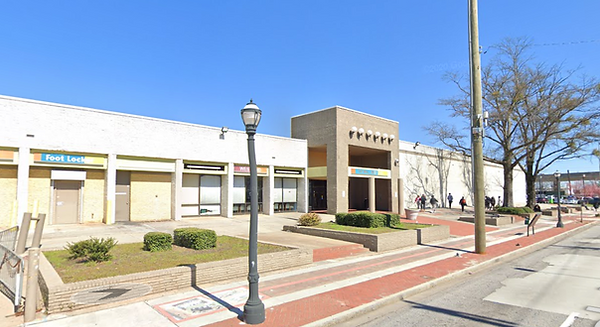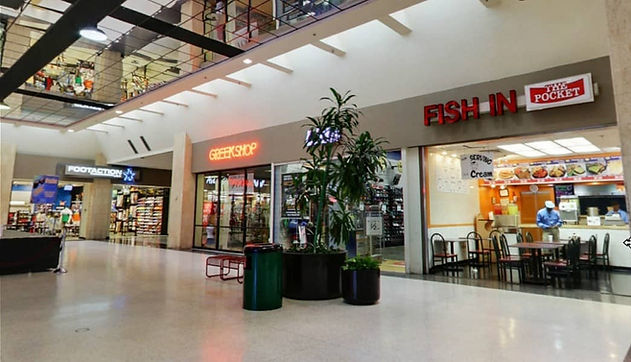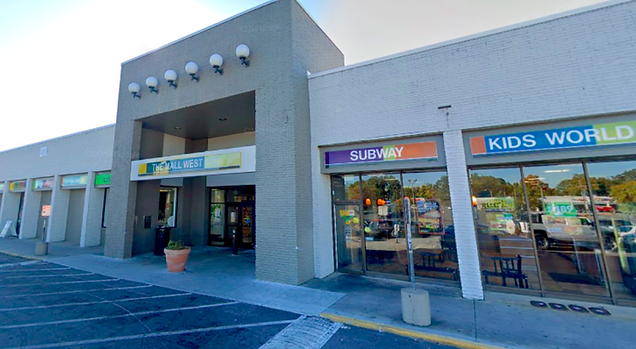THE MALL
THE MALL WEST END


ONE WEST END
The Mall West End’s story is not only one of retail and commerce but also of resilience, identity, and transformation—an enduring part of Atlanta’s African American cultural legacy.

Reflections
The Mall West End: A Legacy in Atlanta’s Cultural History
The Mall West End holds deep historical and cultural significance in one of Atlanta’s oldest and most vibrant communities. Since its opening in 1972, it has served as a central shopping destination, gathering place, and commercial hub—particularly for the African American community. For 55 years, the mall was home to legacy businesses such as Barber Shop II, Ernie & Sons, and West End Eye Center, while also providing generations of families with fond memories. Shoppers like Tiffany Howard recall it as part of their personal history, and the mall hosted countless community events, including Atlanta’s first Black Kente Santa.
The West End is unique in Atlanta as the only business corridor where Afrocentric food, clothing, music, art, and festivals converge as a destination staple. The Mall West End played a pivotal role in shaping and sustaining that identity. Its rise was tied to broader neighborhood transformations. The West End Businessmen’s Association, formed in 1927, was instrumental in the development of I-20, the West End MARTA station, and the mall itself in the 1970s. These changes—combined with the social dynamics of the era—triggered “white flight,” leaving vacancies that allowed Black-owned businesses to thrive. By 1976, West End’s population was 86% African American, and the district became a hub for commerce, culture, and community life.
Strategically located near the Atlanta University Center (home to the Interdenominational Theological Center, Morris Brown College, Morehouse College, Spelman College, and Clark Atlanta University) and surrounded by cultural institutions such as The Wren’s Nest and Hammonds House Museum, the mall reflected the area’s Afrocentric character through its diverse mix of businesses. Beyond shopping, it served as a vital social space where residents connected, celebrated, and reinforced community pride.
In October 2024, the City of Atlanta, in partnership with Atlanta Urban Development Corp. and Atlanta BeltLine, Inc., acquired the 12-acre site. The mall officially closed its doors on January 31, 2025, marking the end of an era. Redevelopment plans call for a mixed-use community with affordable housing, commercial space, and cultural amenities. Construction is scheduled to begin in 2025, with the first phase anticipated for completion in 2026.


1. Historical Significance - Mall West End served as a central shopping, gathering place, commercial hub predominantly for the African American for decades. Opened 1972
2. Economic Impact – the mall has been a key retail space for local businesses, providing jobs and services to the area, at one time boosting achor stores such as Piggly Wiggly, Goodyear, and Sears. The location near downtown Atlanta, surrounded by major roads to significant destinations, and the presence of a MARTA station.
.jpg)


3. Cultural and Social Relevance - Heritage: The West End neighborhood is rich in civil rights history and African American cultural contributions, and the mall is part of that narrative. Offered community space: Beyond shopping, the mall has functioned as a social space where locals convene and connect.
4. Challenges and Revitalization
Decline: Like many malls across the U.S., the Mall West End has faced economic challenges due to changing retail trends, competition, and broader urban development dynamics. Future Potential: Efforts to redevelop or reinvigorate the site sparked discussions about gentrification, community preservation, and equitable development.
5. Proximity to Institutions and Accessibility -Nearby Landmarks: The mall is close to historically significant institutions, such as the Atlanta University Center, which includes HBCUs like Morehouse College, Spelman College, and Clark Atlanta University. Transit Accessibility: Its location near MARTA makes it a key transit-accessible shopping destination. Highway and road access I-285, 3 min to I-75, Cascade Rd, Main Street,



6. Symbol of Change - The Mall West End symbolizes the ongoing tension between preserving historical and cultural identity and embracing modern development in a rapidly evolving city like Atlanta. Its future is seen as pivotal for the West End's growth while maintaining its cultural heritage

Reflections
by Tiffany Howard
Can you relate to Tiffany Howard's memory?
A Gathering Place for Community
We want to hear your memories
Use the link below
Your Turn!

Remember ~
Shopping for the holidays and back to school, concerts and performances, health fairs, etc.
The mall was the central force for community and jump started the careers of business entrepreneurs and performers.
What, who and when? - Tell us your favorite story, send picture or video so we can post, share, and not leave history to chance.
We want to hear your memories
LINK


